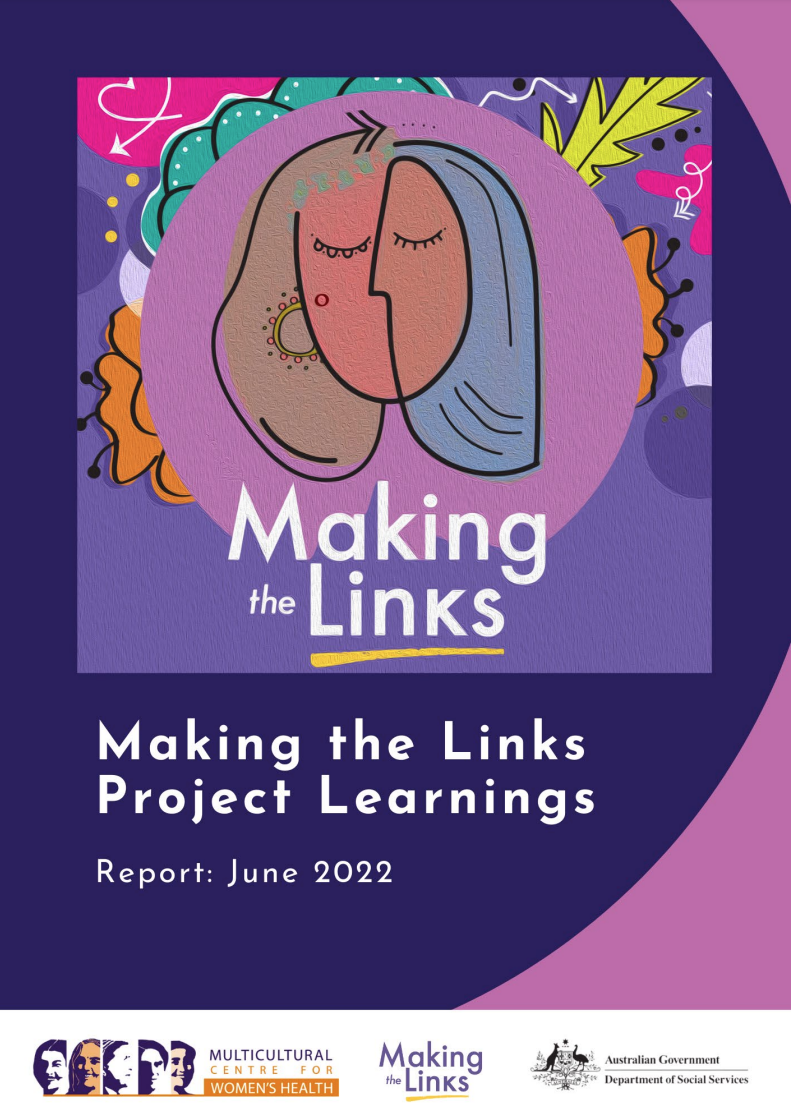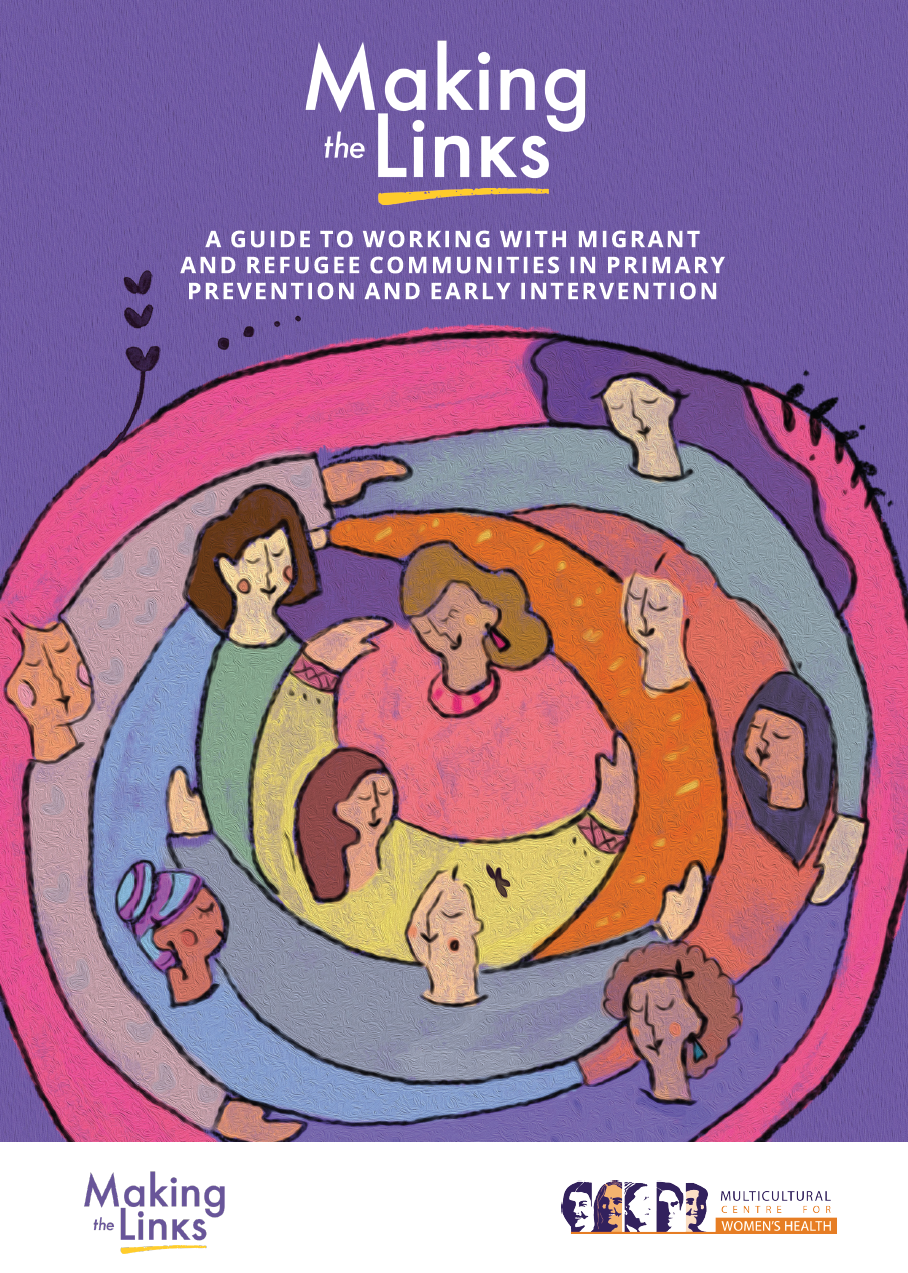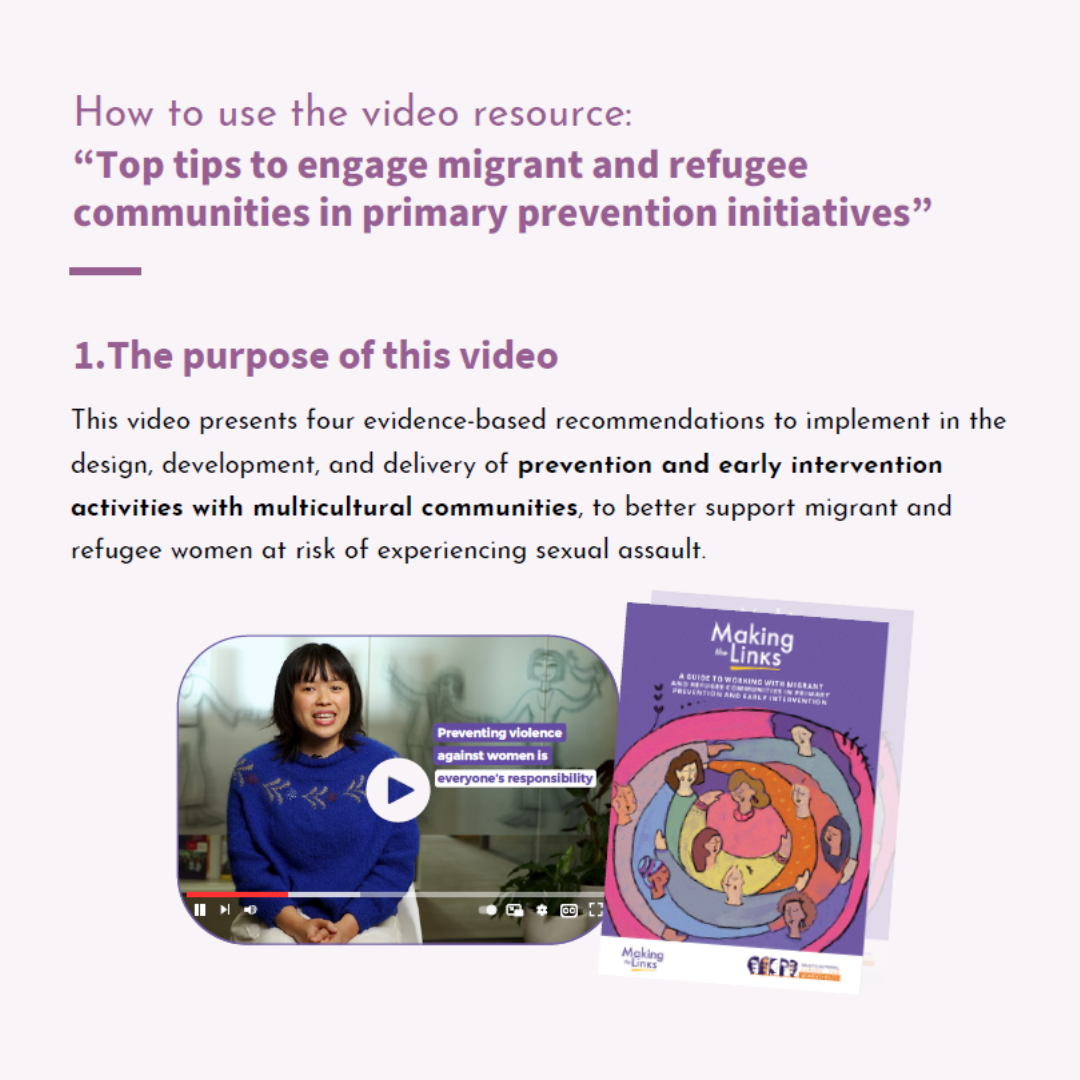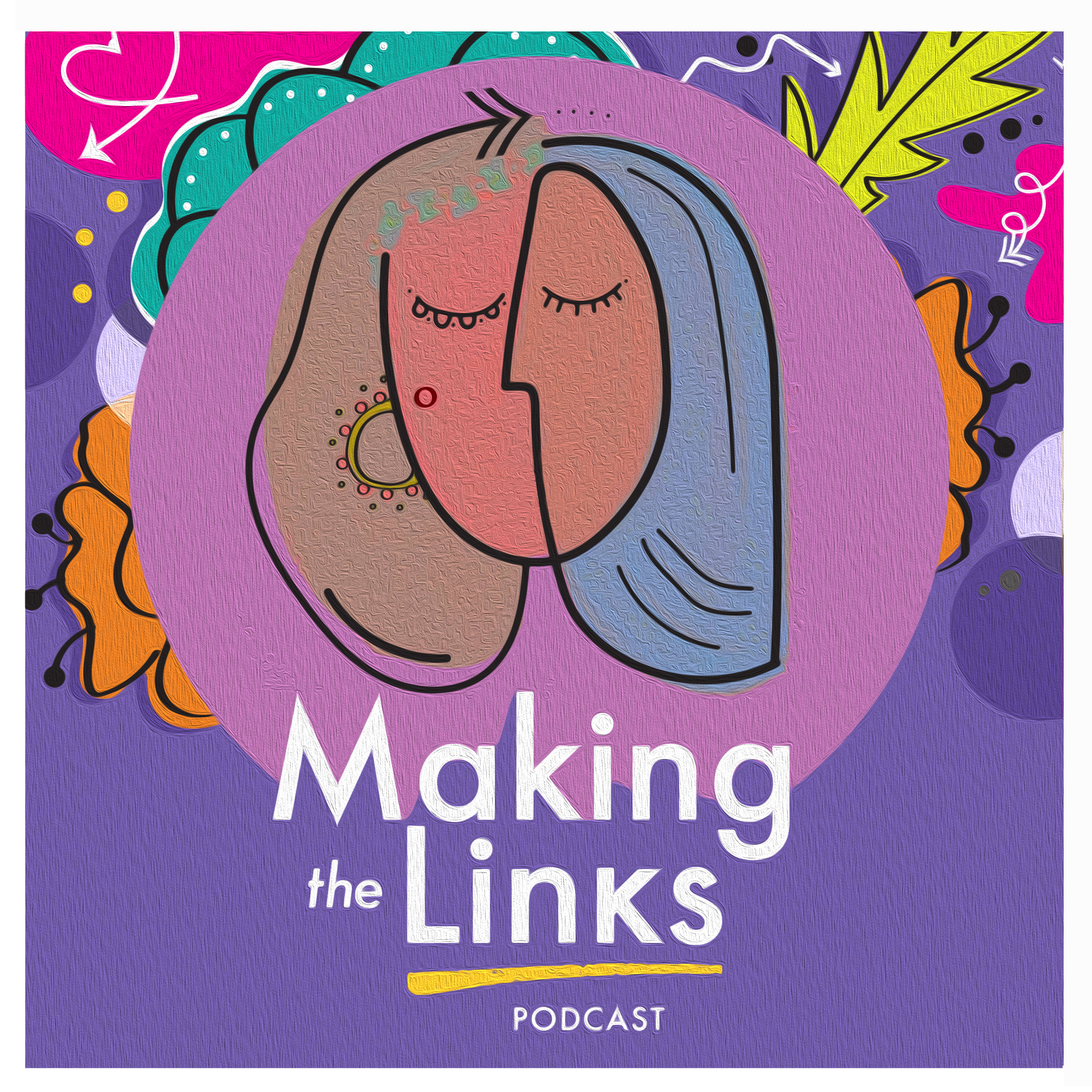Building safer pathways for culturally and linguistically diverse women in regional Victoria
For migrant women living in regional Victoria, the pathways to family violence-related support can be unclear. Strengthening community knowledge and confidence to use support services in regional Victoria is a two way street.
Making the Links is an innovative and collaborative project to link migrant women living in regional Victoria to mainstream family and domestic violence and sexual assault services by building capacity on both sides.
Making the Links: A Guide to Working with Migrant and Refugee Communities in Primary Prevention and Early Intervention
This best practice guide provides six key principles for the development of prevention activities for multicultural communities as well as early intervention actions on how to best support migrant and refugee women who are at risk of experiencing sexual assault.
As part of the Making the Links project we've developed a video resource on our four tips for engaging migrant and refugee communities in primary prevention summarising the recommendations we made in our Making the Links Best Practice Guide.
How to use the video resource in your work
The Making the Links video resource and report is for all practitioners who work with migrant and refugee communities in sexual violence primary prevention and early intervention services. Learn about when, where and how you can use our video resource in your work through our how-to guide.
What's the issue?
All women living in rural and regional Australia face barriers to accessing services, including services related to family, domestic violence and sexual assault. For example, some issues that impact women's access can include:
- remoteness and social isolation
- limited infrastructure and services available
- limited housing and transport options
- limited employment opportunities
Many migrant women experience additional barriers, especially if they are in Australia without family and community supports, have a low level of proficiency in English or have insecure immigration status. Some of these can include:
- lack of information about the services available and how to access them in languages other than English
- stereotyping and discrimination against women from non-Anglo backgrounds
- policy and legislation that reduces women’s access to services (like visa conditions)
To learn more about the barriers for migrant women living in regional areas, read our ASPIRE Project findings or watch the Making the Links video.
Making the Links is funded by the Australian Government Department of Social Services
Making the Links Podcast Series
The Making the Links Podcast Series is about sharing experiences and perspectives on how regionally based migrant and refugee communities can respond to, find support for and prevent family violence.
How has the project made a difference?
Working with partners in Bendigo, Ballarat, Mildura and Swan Hill, Making the Links has supported services to provide culturally inclusive and relevant information and help, and encouraged migrant women to learn more about family violence, sexual assault and local services.
By facilitating education sessions and service tours to connect women directly with local organisations as well as providing multilingual information and cross-cultural support to services about migrant women’s experiences, the project has increased support for migrant women and their children who may be experiencing family violence.

Read more about the outcomes, findings and learnings from the Making the Links project between 2020 - 2022 by reading our Learnings Report.



